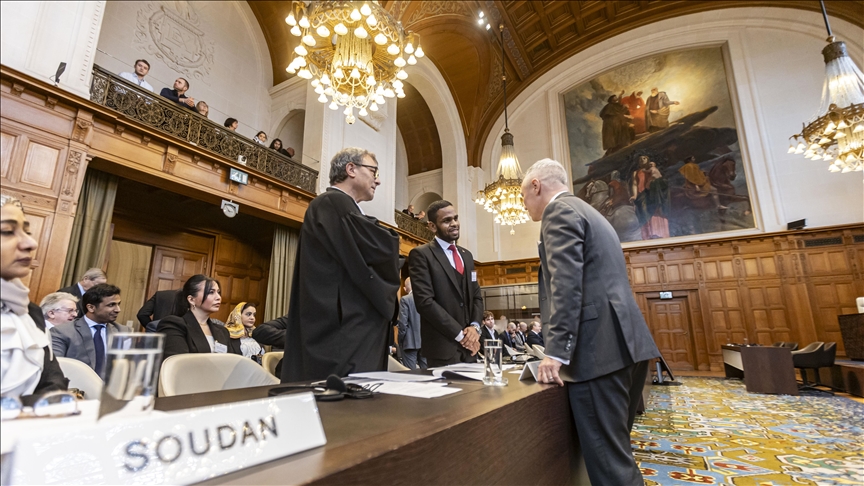World Court rejects Sudan’s ‘genocide’ case against UAE
UN’s top court says it ‘manifestly lacked’ authority to continue proceedings

ISTANBUL
The International Court of Justice (ICJ) on Monday rejected a lawsuit filed by Sudan accusing the United Arab Emirates of involvement in genocide in western Darfur province.
The UN’s top court said it “manifestly lacked” the authority to continue the proceedings and threw the case out.
In March, Sudan filed a lawsuit at the Hague-based court accusing the UAE of “complicity in genocide” by providing military and financial support to the paramilitary Rapid Support Forces (RSF).
Sudan requested provisional measures to compel the UAE to prevent any actions that could amount to genocide against the Masalit ethnic group in Darfur and cease any support or collusion with non-state armed groups.
“The direct logistical and other support that the UAE has provided and continues to provide to the RSF has been and continues to be the primary driving force behind the genocide now taking place, including killing, rape, forced displacement and looting,” Sudan's acting Justice Minister Muawia Osman said during a court hearing on April 10.
Reem Ketait, a senior official at the Emirati Foreign Ministry, said in a statement ahead of the decision that it is “a clear and decisive affirmation of the fact that this case was utterly baseless.”
The UAE had previously entered a reservation to Article 9 of the Convention on the Prevention and Punishment of the Crime of Genocide, which grants the ICJ jurisdiction to hear "disputes relating to the interpretation, application, or fulfilment" of the Convention.
The court, however, noted that the UAE’s reservation does not affect the proceedings in this case.
In response, Sudan’s Minister of Culture and Information and Government Spokesperson Khalid Al-Aiser said the government “will pursue every available legal avenue to hold perpetrators accountable for crimes against the Sudanese people.”
“The Sudanese nation’s case against the UAE will not stop at the ICJ,” he wrote in a post on X.
Al-Aiser argued that the ICJ’s decision was based on procedural grounds under Article 9 of the Genocide Convention, not on the merits of the case. He added that “other international courts are capable of hearing such cases, prosecuting offenders, and holding governments accountable for destabilizing countries and harming civilians.”
Article 9 of the Genocide Convention authorizes the ICJ to resolve disputes between states under the treaty.
The Convention on the Prevention and Punishment of the Crime of Genocide, signed in 1948, was the first human rights treaty adopted by the UN General Assembly, reflecting the international community's commitment to preventing the recurrence of genocide.
Since April 15, 2023, the RSF has been battling the army for control of Sudan, resulting in thousands of deaths and creating one of the world’s worst humanitarian crises.
More than 20,000 people have been killed and 15 million displaced, according to the UN and local authorities. Research from US scholars, however, estimates the death toll at around 130,000.


